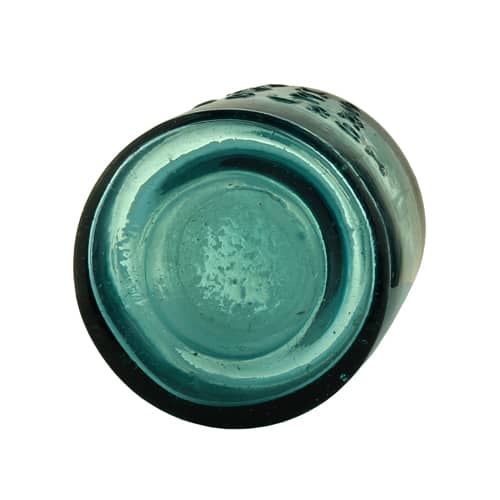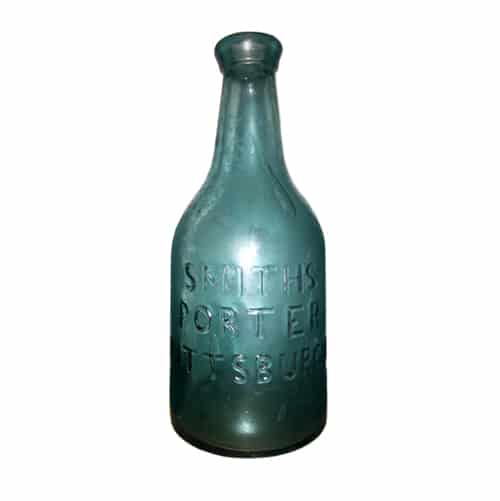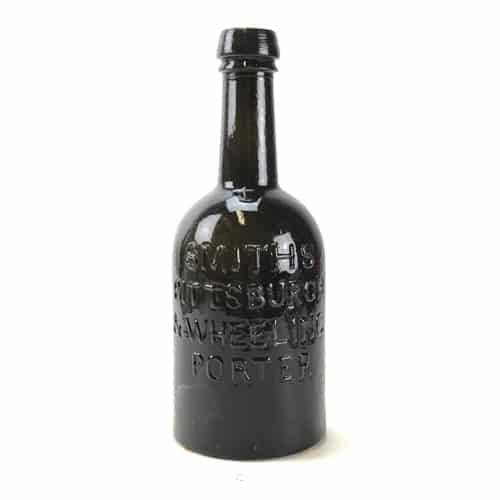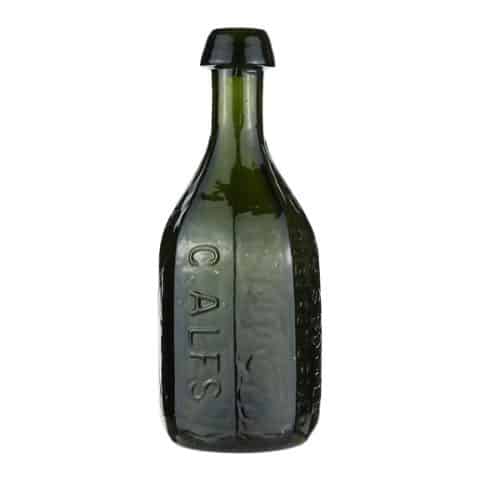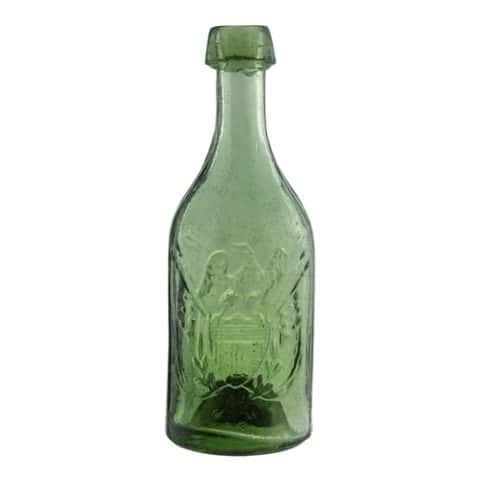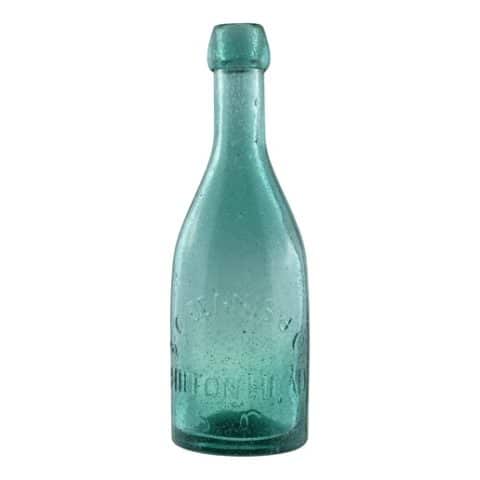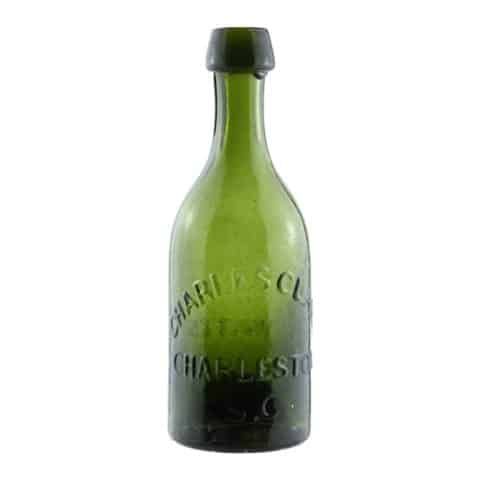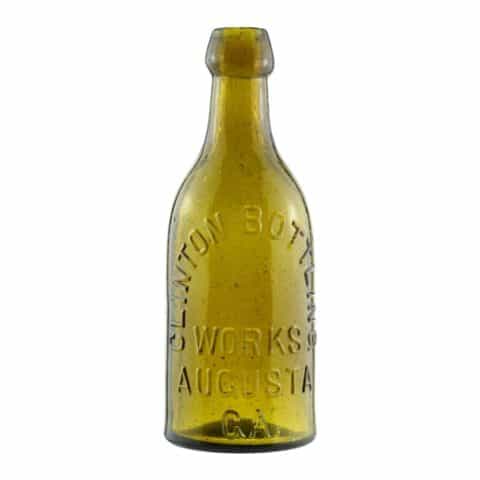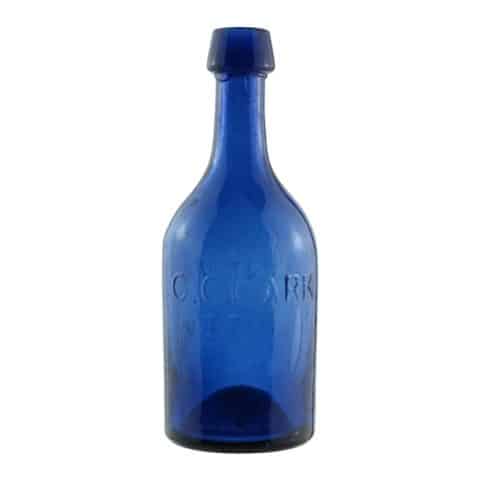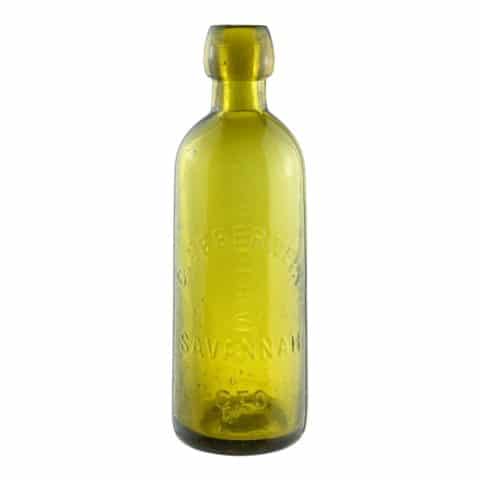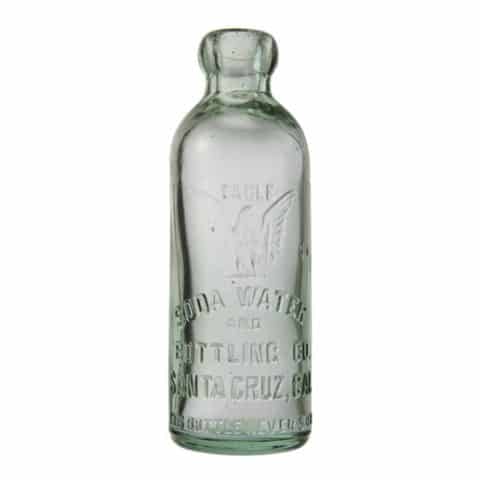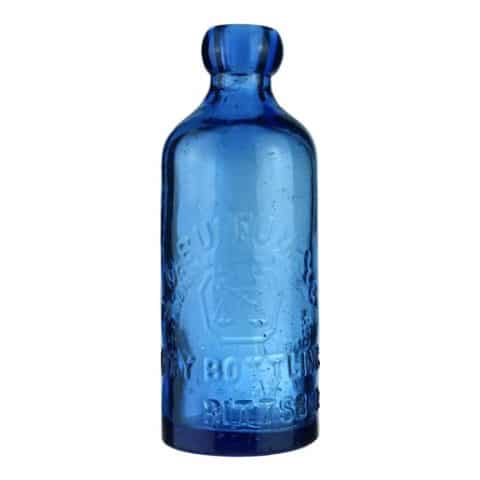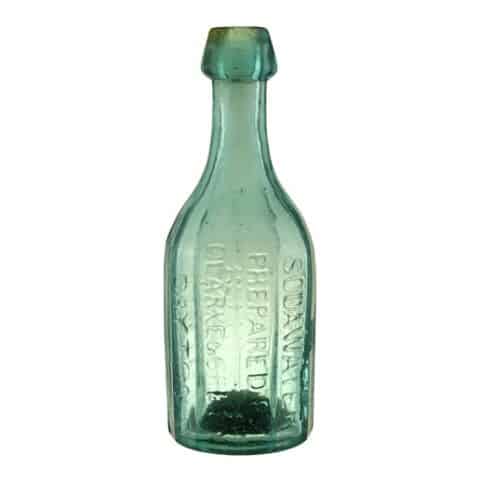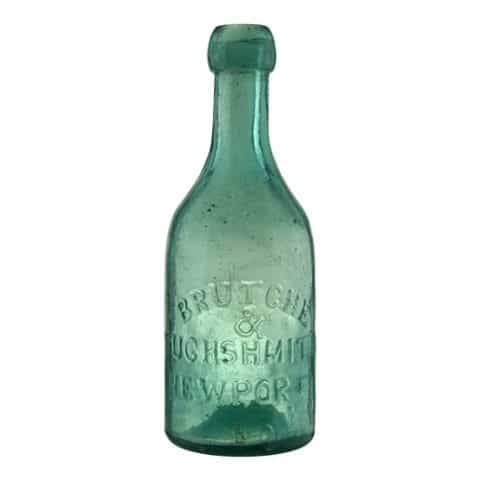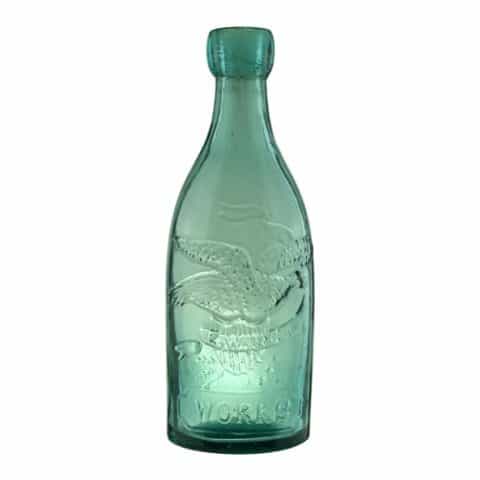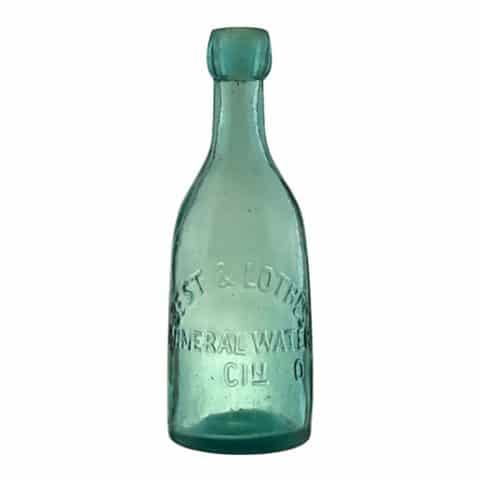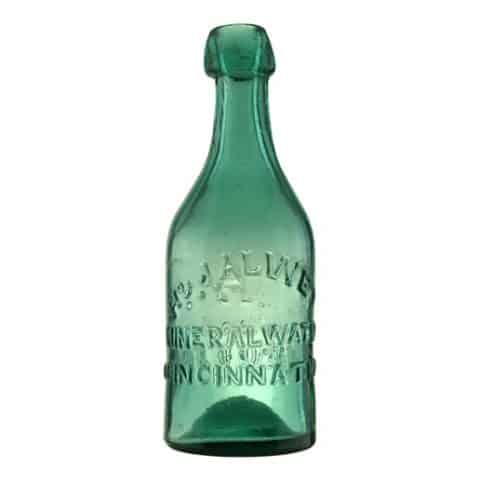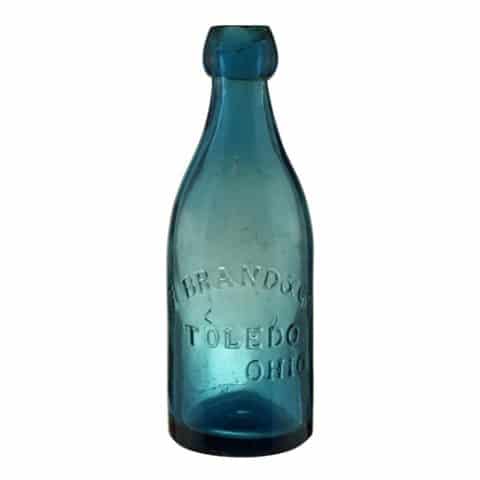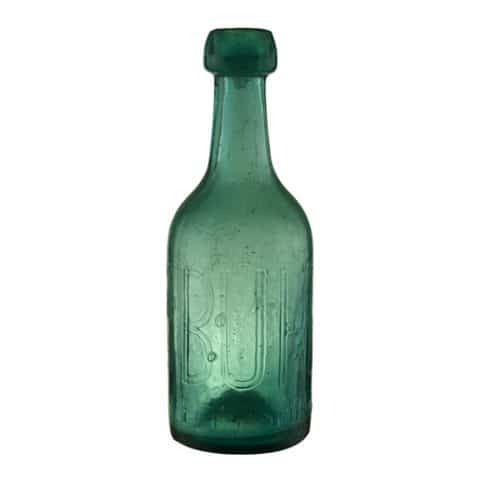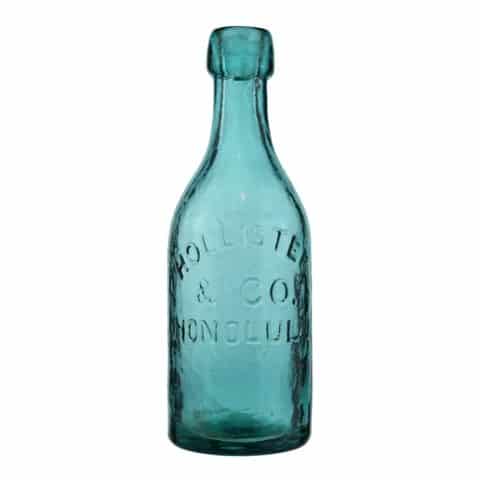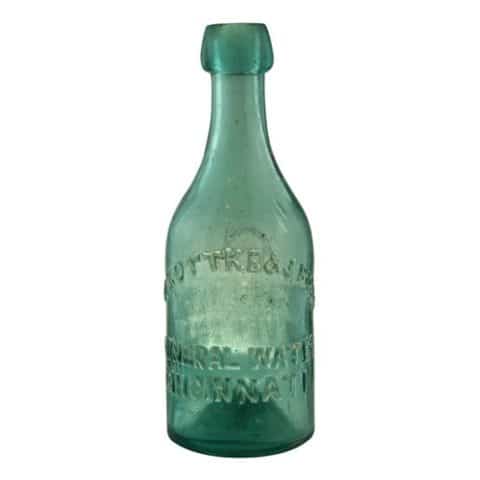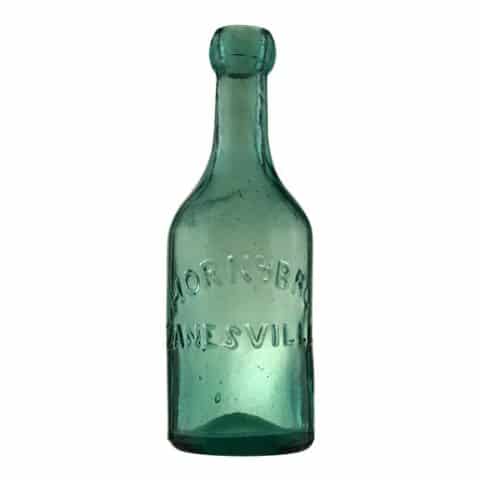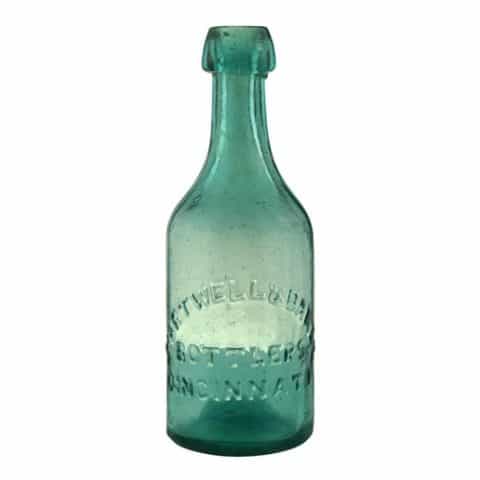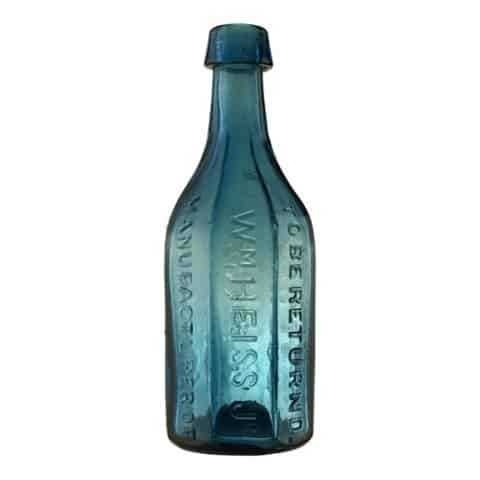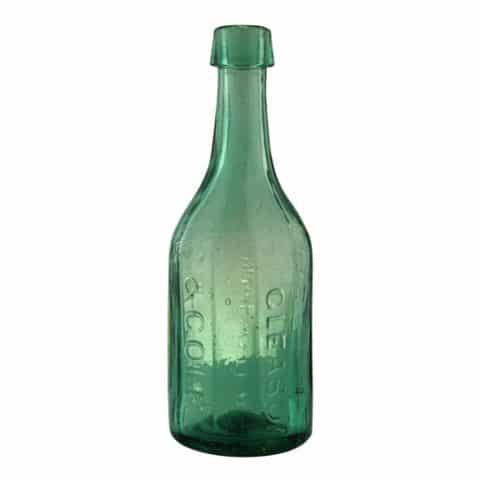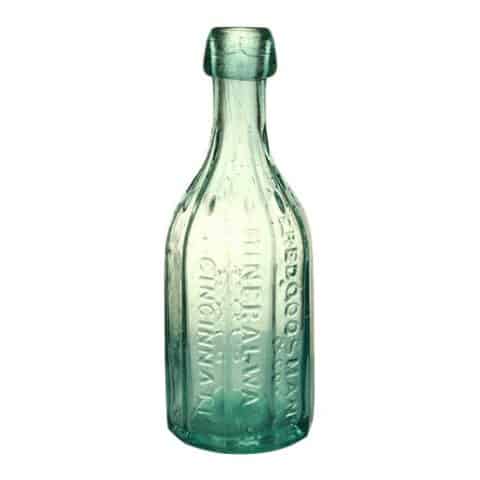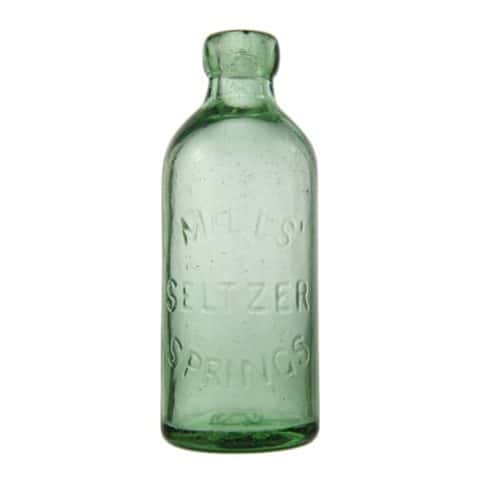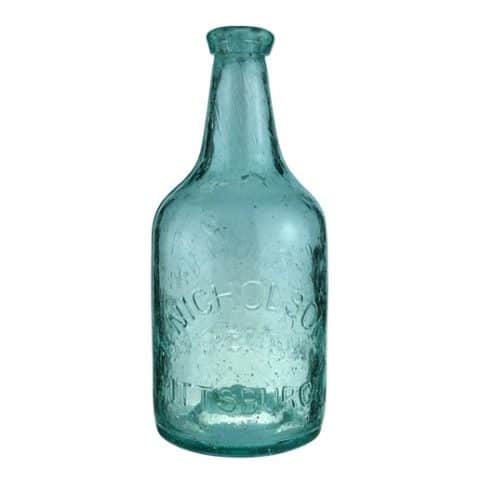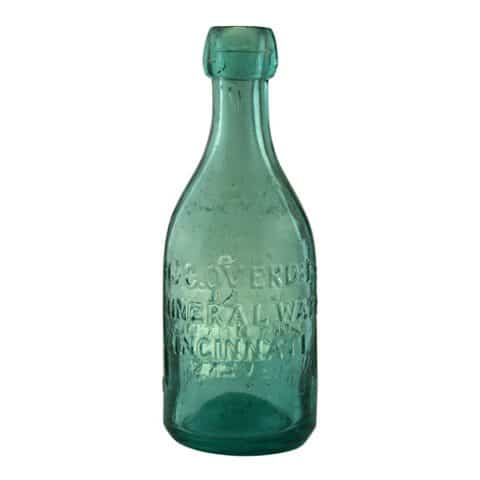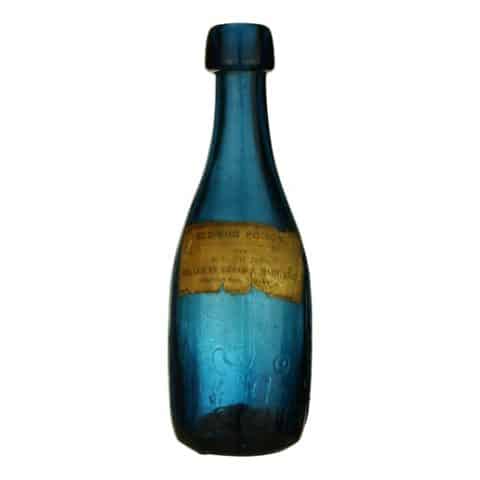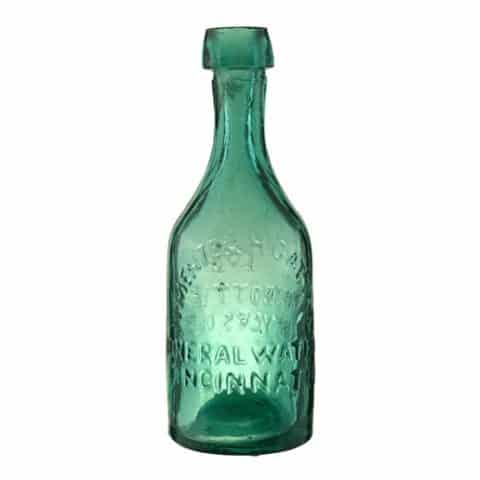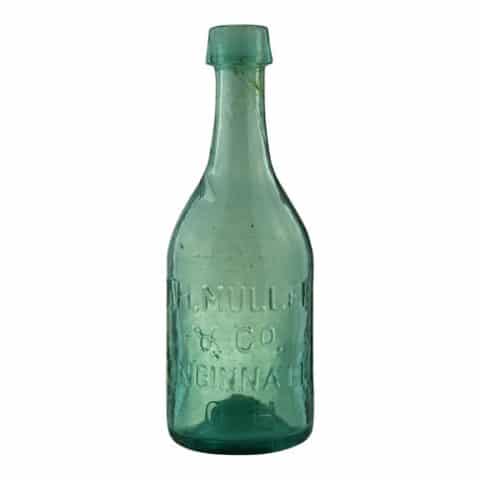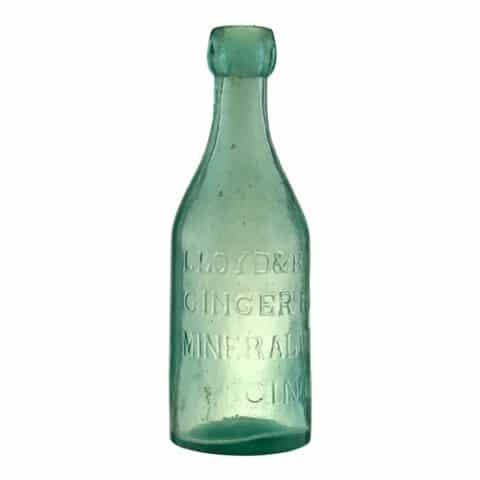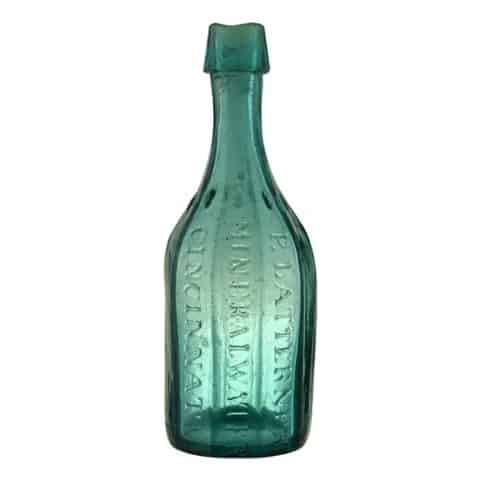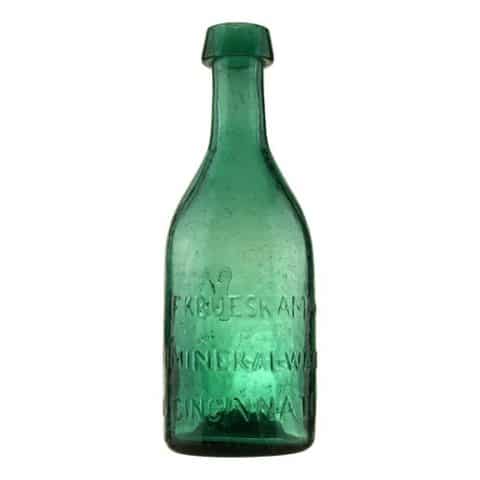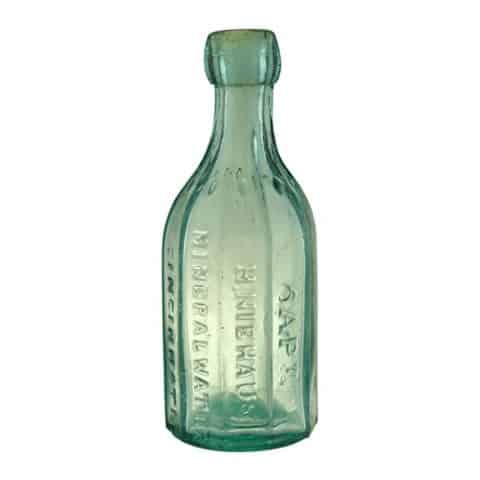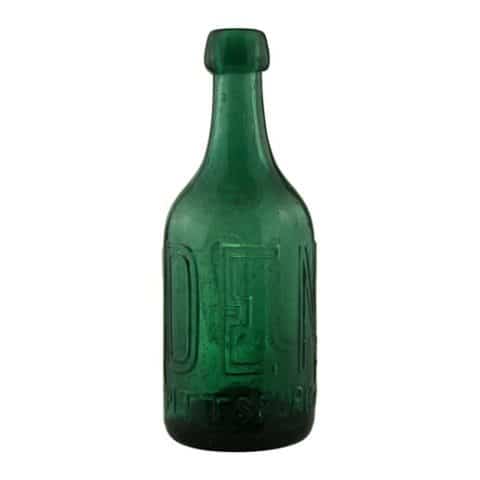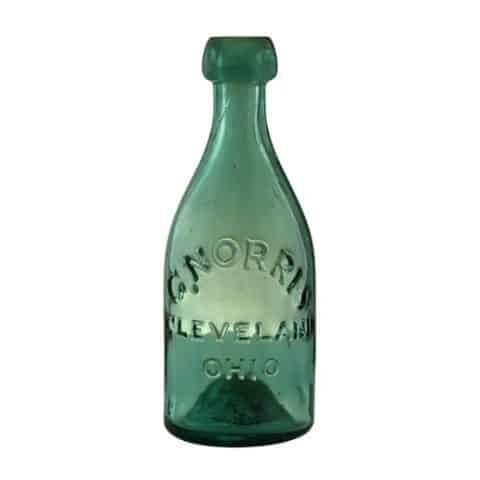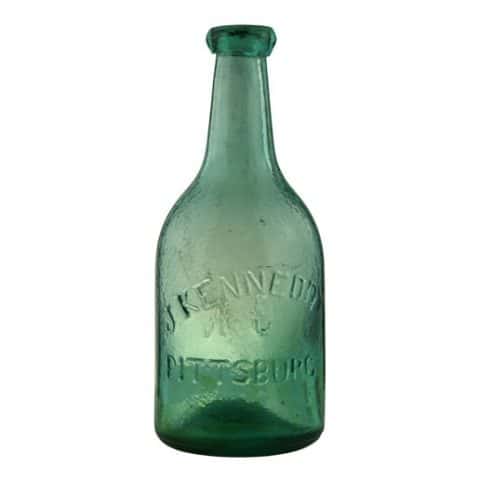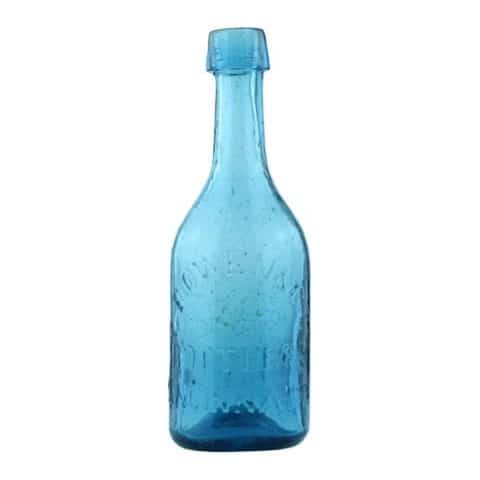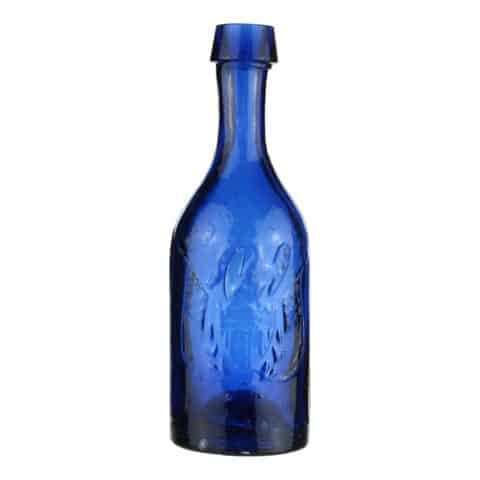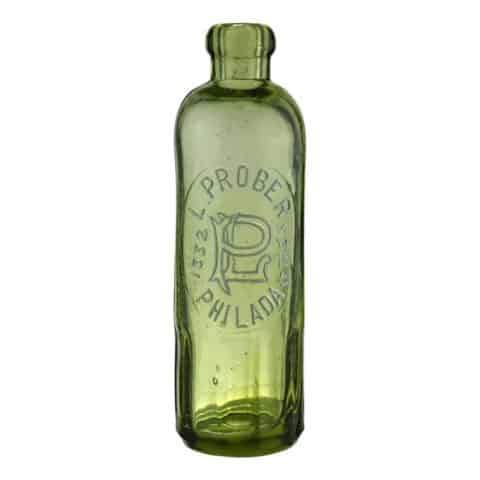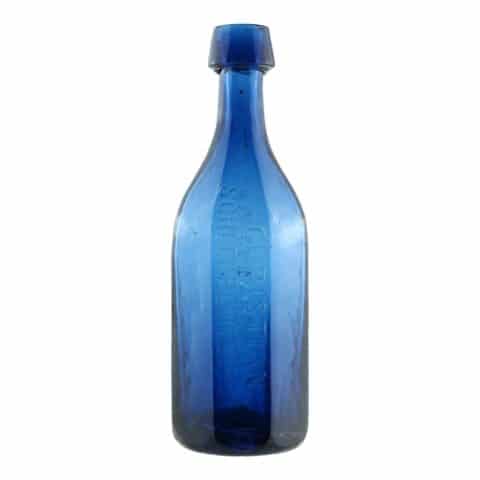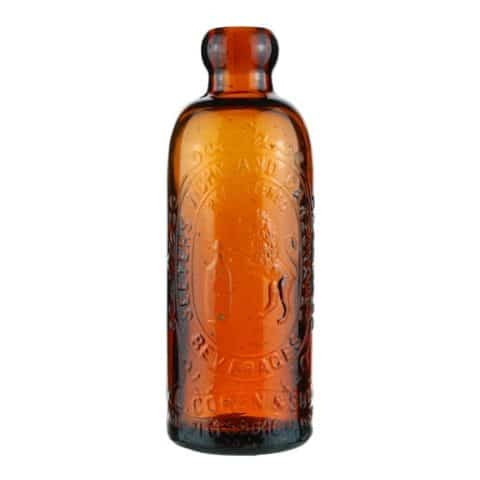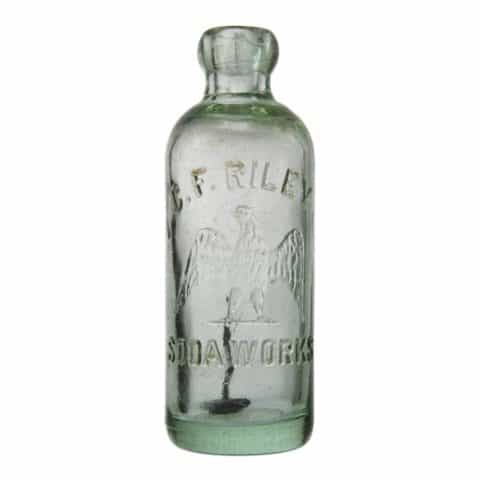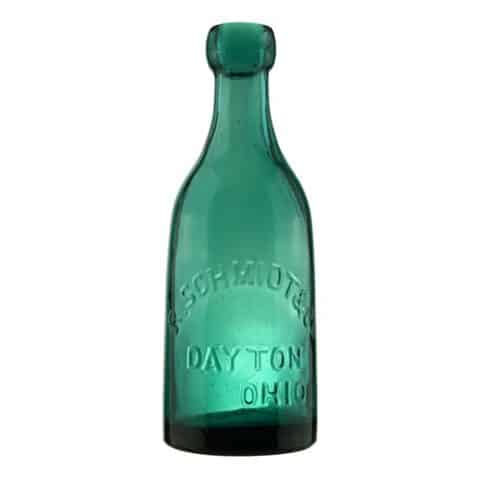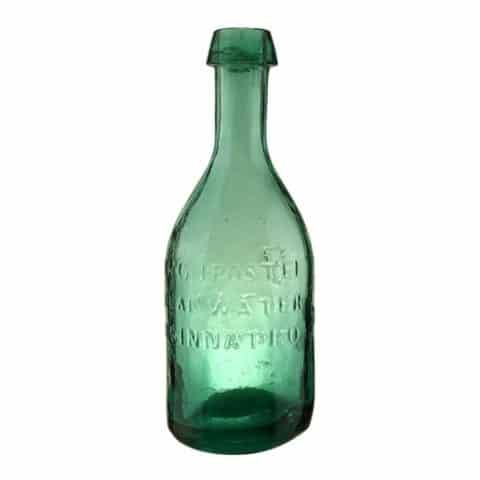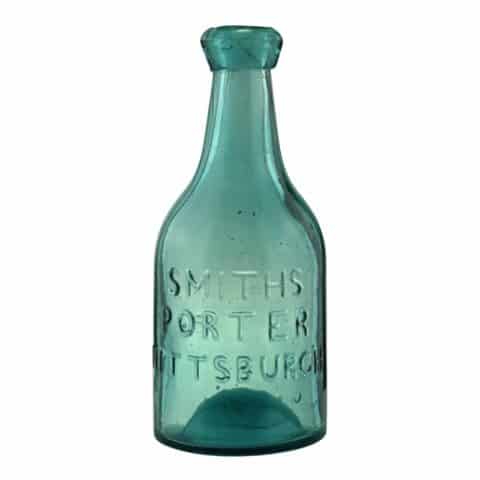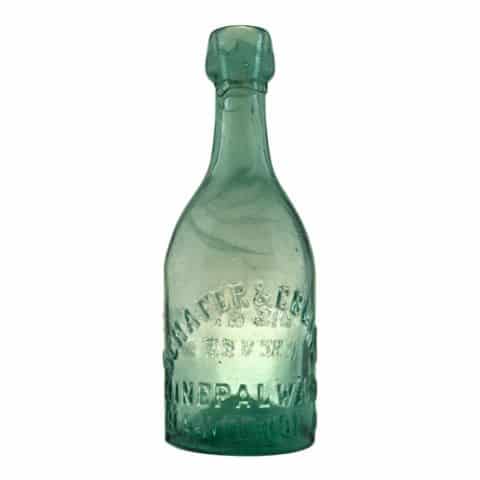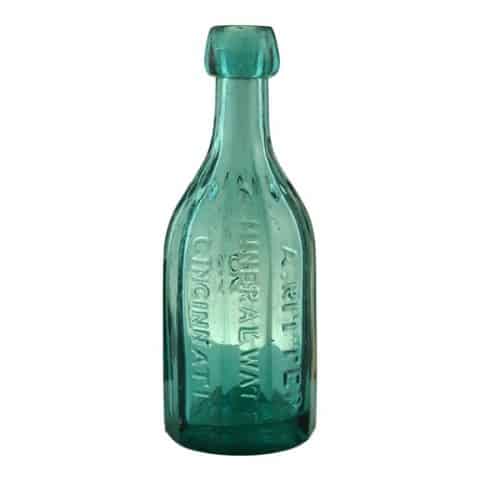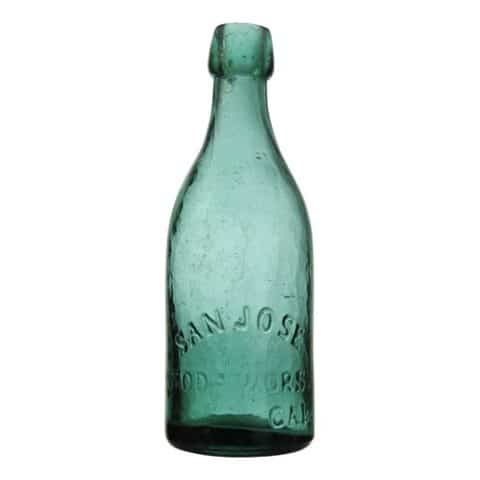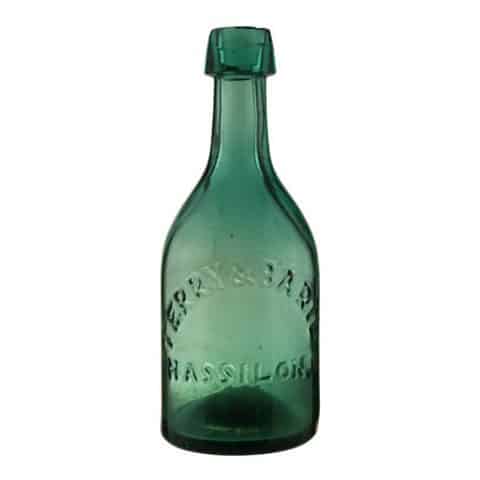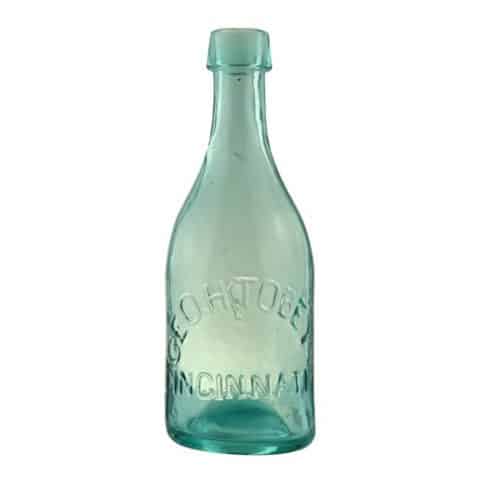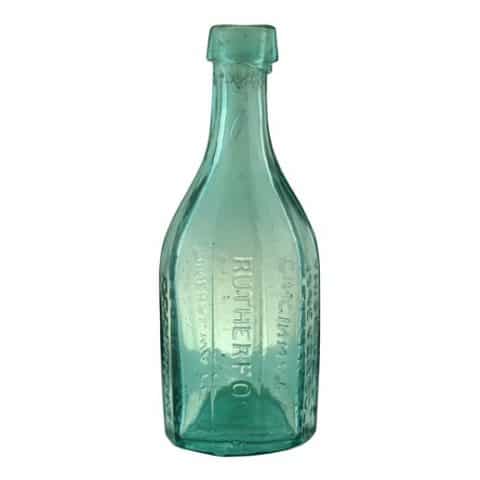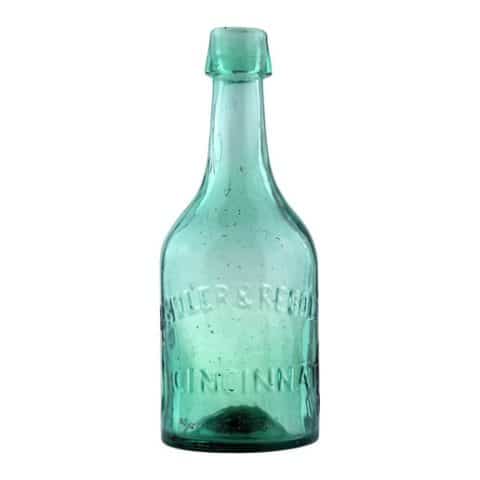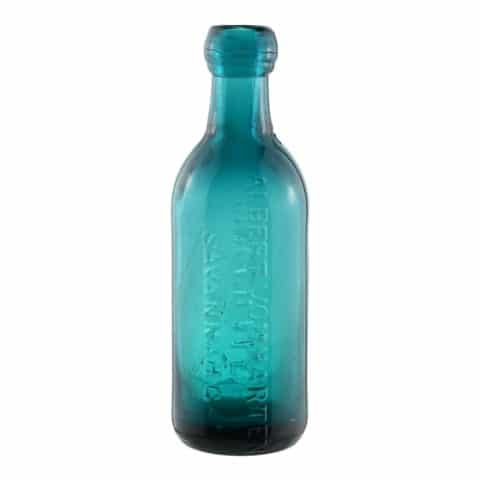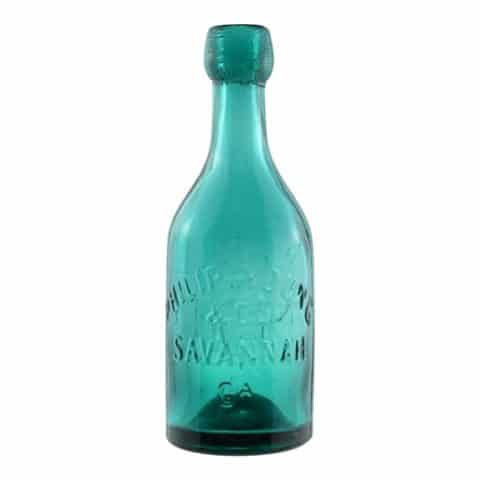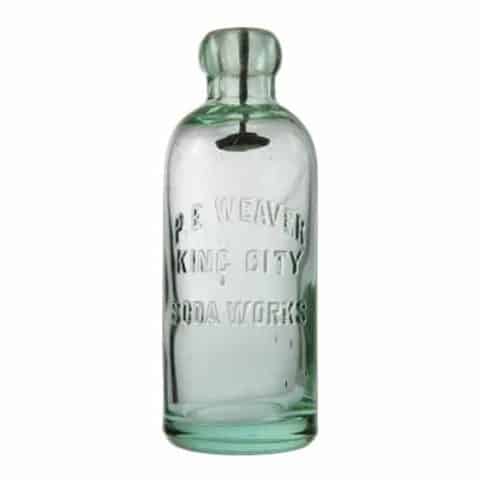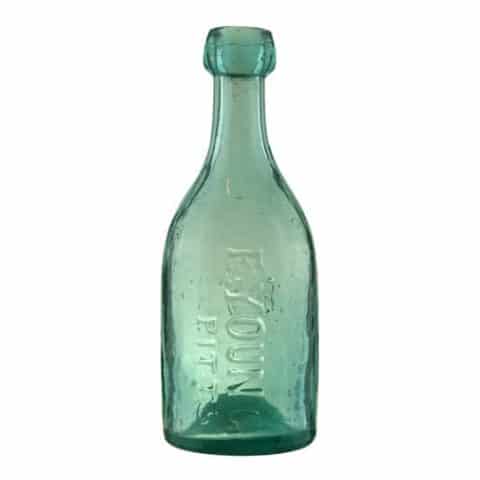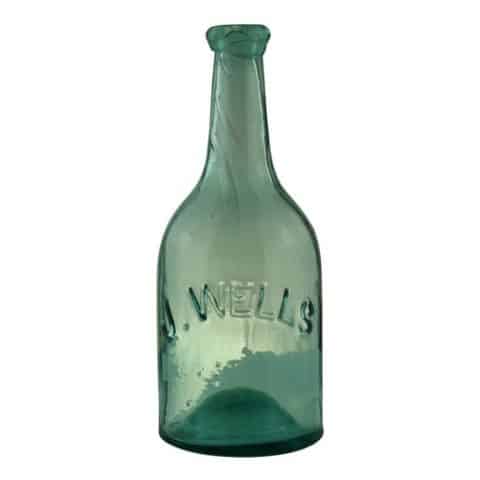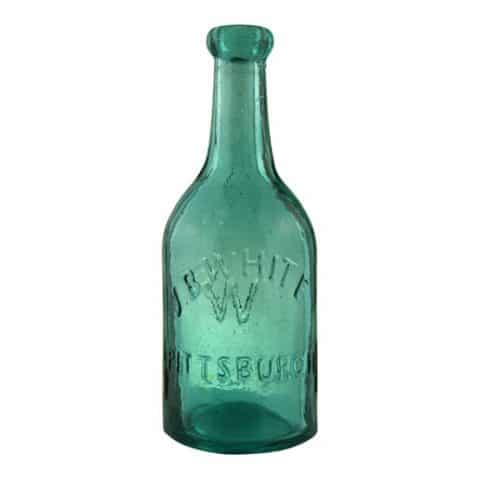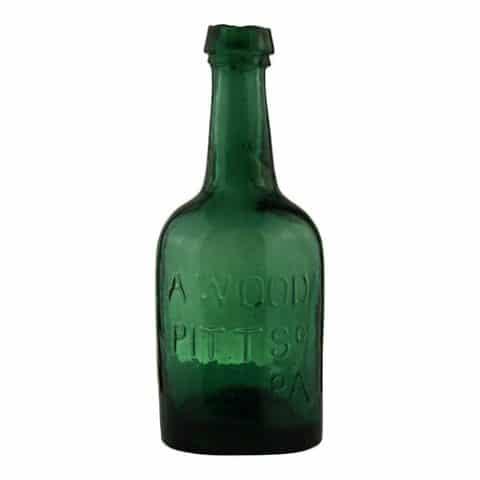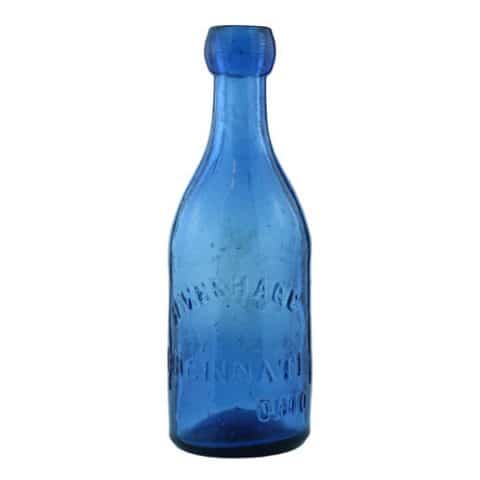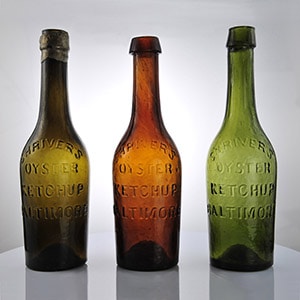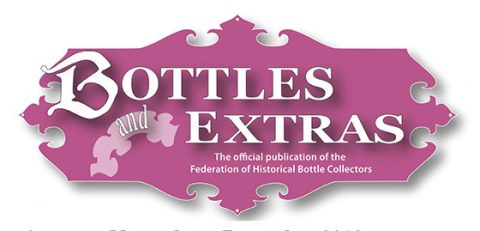Smiths Porter Pittsburgh
Smiths Porter
Pittsburgh
Probably George W. Smith, Pittsburgh, Pennsylvania
Blue-Green Aquamarine Porter
Provenance: Doug Shutler Collection
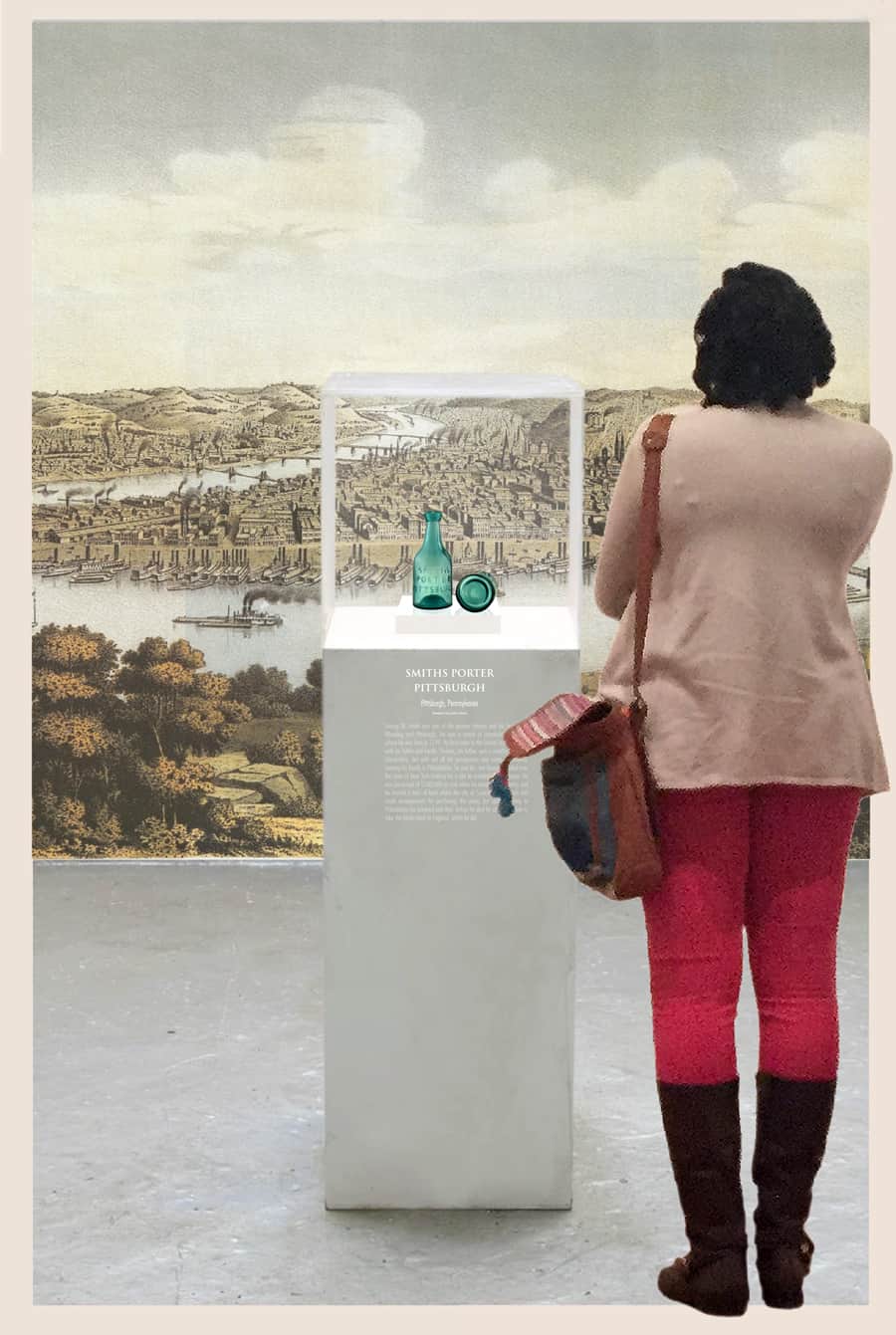
Our museum example of a Smiths Porter Pittsburgh bottle is very rare as we have only seen one other example when looking to compare. The common last name Smith compounds the difficulty in researching the bottle though we know to look in Pittsburgh, most likely in the early 1850s.
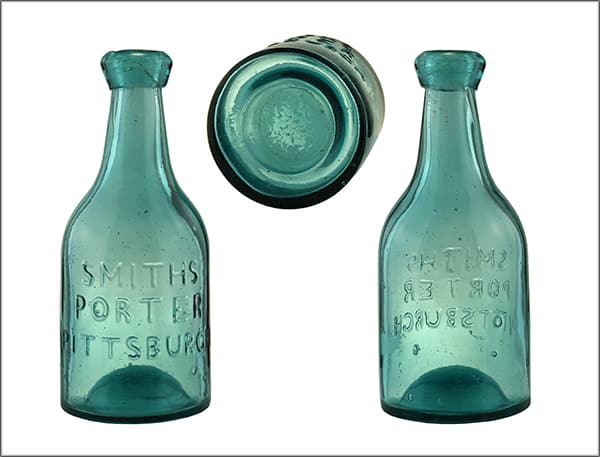
In describing our porter-style bottle, we see that it is in a blue-green aqua glass that measures 7 ¼ inches tall. It has an iron pontil with an applied inverted tapered mouth. The bottle is embossed on one face ‘SMITHS PORTER PITTSBURGH’ in three stacked centered lines.
There are three primary possibilities in attributing the bottle to a specific person: George W. Smith, Elijah Smith, and Joshua Smith, who appear to be unrelated. All operated out of the Pittsburgh area in the early 1850s.
- George W. Smith & Co. Brewers, c Pitt & Duquesne, 1850 Fahnestock’s Pittsburgh Directory. We have profiled George W. Smith below.
- Elijah Smith, Porter, 156 Fulton Street, Woodward & Rowlands’ Pittsburgh Directory for 1852. Glass gatherer in 1872.
- Joshua Smith, Porter Bottler, Morgan ab Bank Lane, Allegheny, 1856 Pittsburgh City Directory. Joshua was born in Ireland in about 1803. According to the 1850 United States Federal Census, he was in the bottling and beverage industry.
George W. Smith
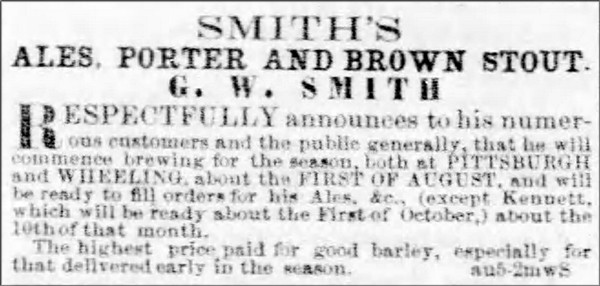
See the museum example of a Smiths Pittsburgh & Wheeler Porter bottle.
George W. Smith was relatively well-known and merited this biographical sketch from History of the Upper Ohio Valley, Brant & Fuller, 1890.
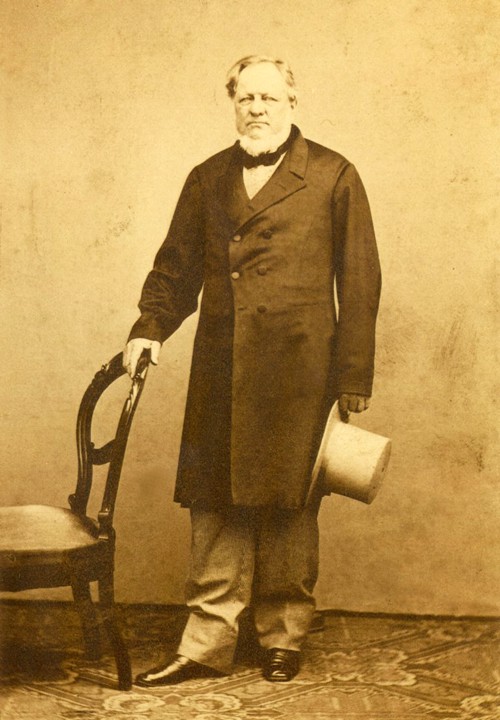
George W. Smith was one of the pioneer citizens and ale brewers of Wheeling and Pittsburgh. He was a native of Lincolnshire, England, born in 1799. He first came to the United States in 1819 with his father and family. Thomas, his father, was a wealthy citizen of Lincolnshire but sold out all his possessions and came to America. Leaving his family in Philadelphia, he and his son George traveled over the state of New York looking for a site to establish a home. Smith possessed $100,000 in cash when he came to this country, and he located a tract of land where the city of Syracuse now stands and made arrangements for purchasing the same, but upon returning to Philadelphia, he sickened and died. Before he died, he advised his son to take the family back to England, which he did.
In 1820, the son returned to New York, from which city he engaged a supercargo to run between New York and Tampico, Mexico. He continued for a year or so in that calling, during which time he had many exciting adventures, having several fights with pirates. He carried the last cargo to New Orleans after trying to dispose of it in Mexico, but being unable to sell it there, he loaded it on a model barge and took it up the Red River to Little, Rock, Ark., then a frontier trading post. After selling the cargo, he started on a horse for New York. He rode through Arkansas, Tennessee, Kentucky and crossed the Alleghenies in West Virginia to Baltimore, and from the latter place, staged it to New York City.
After that, he and his brother started a brewery in New York on Broadway. After being in business there for several years, he sold out and went to Albany, N.Y., where he ran a brewery for some time. In 1829, he was induced to go to Pittsburgh as a brewer for the firm of Brown & Verner, then extensive brewers of that city. He was paid the largest salary west of the Allegheny mountains for this position; the sum paid being $500. Remaining with that firm for three years, receiving for the last two years he was with them a salary of $1,000 per year, at the expiration of this time, he was taken in as a partner. Three years later, he bought the entire business and ran it successfully, erecting a new brewery and making other extensive improvements. He continued in the brewery business in Pittsburgh until 1862, when he sold out. In 1847 he purchased the old brewery in East Wheeling, which was built in 1822, by the father of Philip Henry Moore, purchasing it from the old Northwestern bank. After selling out the Pittsburgh brewery, he operated the one in Wheeling until the fall of 1865, when he retired from active business.
In 1856 he removed to Wheeling and bought the old Spring farm from Dr. Chappel, which he improved and took possession of as a home for his family. He named the farm after his father’s estate in England, Waddington. A. Allen Howell now owns the homestead. He was married in Pittsburgh in 1834 to the widow Elizabeth Faddington, who was born in 1800 in Yorkshire, England. Three children were born to this marriage: Eliza, who married Joseph Fleming, a Pittsburgh druggist, and died in 1863; George, who died in 1858; and Alfred E. The father died in 1872 on his farm in Champaign County, Ill., where he was temporarily living, his home being in Chester, near Philadelphia, where he removed after his second marriage in 1865, having married Mrs. Darlington, mother of Harry Darlington, a prominent brewer of Pittsburgh.
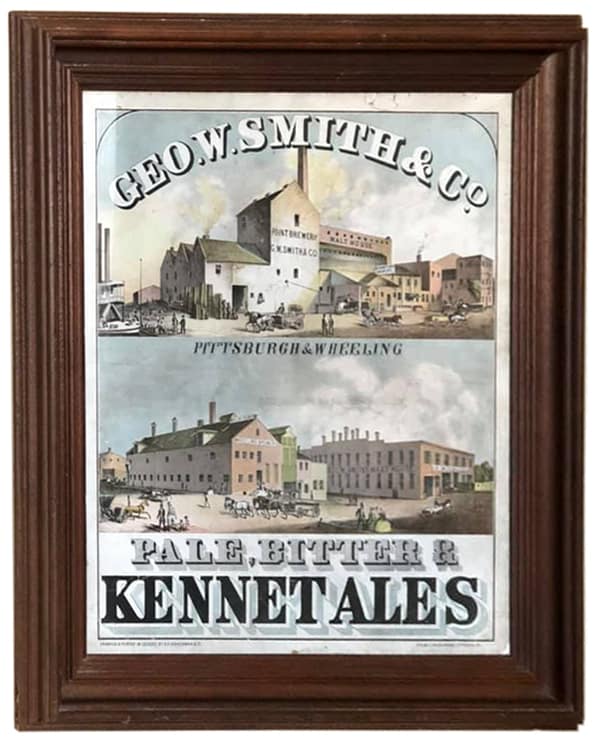
Primary Image: Smiths Porter Pittsburgh bottle imaged on location by Alan DeMaison, FOHBC Virtual Museum Midwest Studio
Support Image: Second example of a Smiths Porter Pittsburgh from the Aaron Weyand collection (in scrolling images).
Support Image: One of a kind black glass porter embossed ‘Smiths Pittsburgh & Wheeling Porter’ (in scrolling images) from the Chip Cable collection.
Support Image: Framed Geo. W. Smith & Co., Pittsburgh & Wheeling Pale, Bitter & Kennet Ales poster from the Chip Cable collection.
Support: Reference to The American Pontiled Soda Database Project, Tod von Mechow
Support: Reference to Roll Out the History: IPA Master Brewer Once Owned Waddington Farm, Christina Fisanick, October 2, 2018
Support: Reference to Soda & Beer Bottles of North America, Tod von Mechow
Join the FOHBC: The Virtual Museum is a project of the Federation of Historical Bottle Collectors (FOHBC). To become a member.

